Pulse Films creatives explained how incorporating narrative into documentaries helps push the boundaries of the genre, in a panel at London’s Open City Docs Festival.
The panel focused on the upcoming documentary, The Possibilities Are Endless [pictured], about the rise of singer/songwriter Edwyn Collins’ career in the ’90s and its subsequent downfall after Collins suffered a stroke in the early 2000s.
Director Ed Lovelace, who worked on the film along with creative partner James Hall, said they worked with Collins extensively on the film, collecting nearly three years of interviews with the singer and spending two months living and shooting in Collins’ hometown of Helmsdale, Scotland.
Lovelace said they wanted to make a film that visualized the stories Collins told them about the dreams he had while in his coma and how he worked to piece his life back together in recovery.
“We wanted to make a movie about identity and memory”, he said. “Documentaries are always like, things happen, and then you go and make the documentary about moments already being gone, which we didn’t want to do.”
Lovelace and Hall used shots of people and places in Helmsdale to create dream-like sequences to accompany the visions Collins described from his coma. Lovelace said they also took a risk using actors in the film to portray the early relationship of Collins and his wife, Grace.
A professional actress, Yasmin Paige— a former Screen International Star of Tomorrow whose previous credits include Submarine—mirrored Grace. But Lovelace and Hall approached Collins’ son, Will, to play his father. Lovelace said he felt incorporating Will in the film would help drive the narrative.
“When [Edwyn] was first coming out of the hospital, his son Will was starting in a band,” Lovelace said. “His son started to research into his dad’s back catalogue and felt really inspired. Edwyn used to watch Will struggling to write songs, and that inspired Edwyn to be like, “Well maybe I can write songs again, even though people don’t know if I’ll be able to talk again””.
While Pulse Films supported Lovelace and Hall throughout the filmmaking process, first-time producer Julia Nottingham explained, there were worries about the unusual direction of the doc. Nottingham said she believed going to Helmsdale and seeking out a narrative helped ease investors’ worries and made the film more suitable for the cinema.
“Music docs are in a good position because if you can find a narrative in a music doc, you have the best of both worlds,” she said. “Music is something that we all love. It gives pace to things and it’s familiar and it makes you engage in certain emotions”.
Anna Sissons, from Pulse’s new distribution arm, discussed how her team planned to market the film, set for release in early November. She explained how in order to access as many audiences as possible, the film needs to be promoted as more than the story of a man recovering from a stroke.
“The film really is a love story, and it’s a love story between Edwyn Collins and his wife Grace that is so inspiring for audiences,” she said.
Another important element in the film’s release is its premiere. Sissons said she has looked to Pulse films like LCD Soundsystem doc Shut Up And Play The Hits and the upcoming Nick Cave doc 20,000 Days on Earth. Films like these, she said, can benefit from the artists’ dedicated fan base.
For Shut Up And Play The Hits, the premiere was treated like a star-studded event, with satellite broadcasts and a red carpet. Sissons explained this may not be the proper way to handle Collins’ film.
“Edwyn Collins, he’s not as well-known as LCD Soundsystem or Nick Cave, so we need to work a little bit harder to invigorate people’s memories about him, which ties in really nicely with the film,” she said. “There’s something really beautiful that we can do that’s a little bit more intimate than just having a huge satellite event”.
Lovelace said it frustrates him that all documentaries get lumped into one category when fiction films get broken down in genres like drama, comedy and thriller. Sissons agreed and said she thinks audiences are increasingly drawn to films like The Possibilities Are Endless, where factual and fictional storytelling collide.
“Audiences now watch documentaries as a piece of cinema, a piece of art in itself, Sissons said. “It’s since releases like The Imposter—which was never really marketed as a documentary, it was marketed more as a thriller—it’s since film releases like that that we can be very creative with this film”.

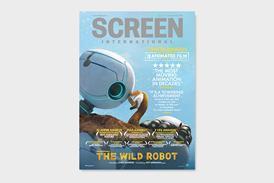


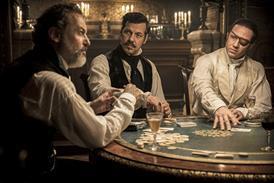

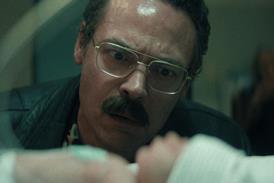
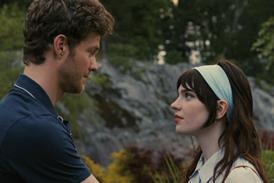




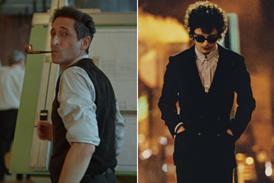
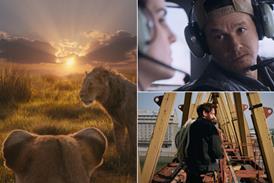
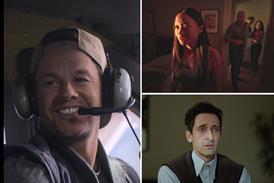
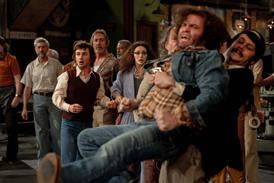
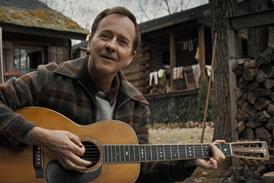
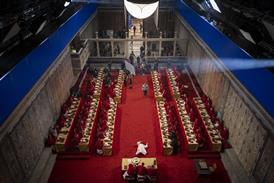




No comments yet